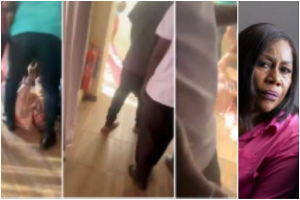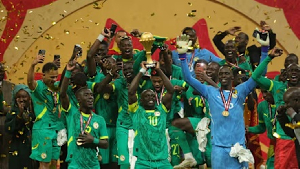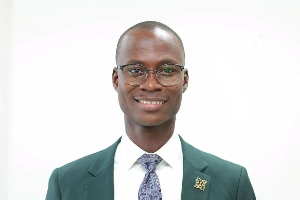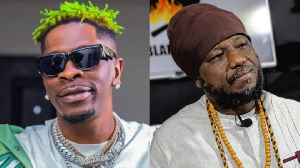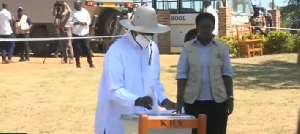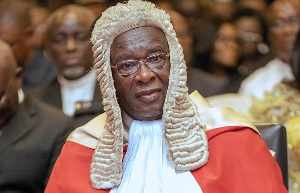By Kwame Okoampa-Ahoofe, Jr., Ph.D.
In the wake of a phone leak in which Ms. Victoria Hammah, the dismissed Deputy Communications Minister, was overheard confiding to a friend that Nana Oye Lithur had criminally compromised the verdict of the nine Supreme Court judges who presided over the Election 2012 Presidential Petition, led by Nana Akufo-Addo and the main opposition New Patriotic Party, by meeting with the judges in camera, immediately prior to the delivery of their decision, Chief Justice Georgina T. Wood established an investigative committee to look into the matter. We must also promptly point out that Ms. Hammah had only implicitly accused Mrs. Lithur of criminal wrongdoing, fully unaware that her private conversations were being secretly recorded by her relative and officially assigned chauffeur.
The investigate committee, headed by Associate-Justice Date-Bah, has finally submitted its findings; and predictably, it claims that Ms. Hammah's involuntary allegation could not be substantiated by the evidence adduced before it by the plaintiff, Mr. Kwadwo Owusu-Afriyie, who is also the General-Secretary of the New Patriotic Party (See "Oye Lithur Didn't Bribe Judges - Date-Bah C'ttee" Radioxyzonline.com / Ghanaweb.com 1/4/14).
The Chief Justice ought to be commended for promptly taking up the matter. However, there are many questions that are crying for satisfactory answers, if the credibility of the Date-Bah Committee is not to be roundly pooh-poohed by the court of public opinion. The first of these questions regards the grievously apparent failure of the committee to subpoena the primary source of the leak, Ms. Victoria L. Hammah. If, as it clearly appears to have been the case, the Date-Bah Committee had no subpoena powers to have compelled Ms. Hammah to testify before it, in this high stakes national-security issue, then, to begin with, it ought not to have sat on the case at all.
In essence, what we have here is a diversionary wastage of the taxpayer's money, assuming that the investigators assigned to the case had been paid for executing their terms of reference which, of course, clearly appears not to have been satisfactorily achieved. The second question regards why Chief Justice Wood so flagrantly decided to set up a panel headed by an active member of the Supreme Court to investigate the matter, rather than referring the same to an Independent Investigator/ Prosecutor.
In other words, was this investigative tack, or approach, clearly not plagued by a conflict-of-interest scenario? And if so, why had the Chief Justice not readily recognized the same and avoided the certain credibility gap that her decision was apt to create in the minds of critically thinking members of the public? Or was it simply because the Chief Justice merely wanted to create a diversionary avenue for the plaintiff and his supporters and sympathizers to benignly let off steam, as it were?
I am also flabbergasted over why the plaintiff, Mr. Owusu-Afriyie, himself a well-known lawyer, decided to partake in such a palpable charade. What, really, was the purpose of Mr. Owusu-Afriyie's rather lame decision to cross-examine Mrs. Oye Lithur, the Minister of Gender, Children and Social Protection, herself an equally well-known lawyer of international repute? Did "Sir John," as Mr. Owusu-Afriyie is popularly known, for instance, expect to cow Mrs. Lithur into an artless, or ingenuous, submission or facile admission of the truth, as the plaintiff perceived the same? Go figure!
___________________________________________________________
*Kwame Okoampa-Ahoofe, Jr., Ph.D.
Department of English
Nassau Community College of SUNY
Garden City, New York
Jan. 5, 2014
E-mail: okoampaahoofe@optimum.net
###
Opinions of Wednesday, 8 January 2014
Columnist: Okoampa-Ahoofe, Kwame


